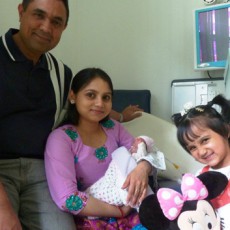- May 26th, 2015
- Author: Maria Mcleod
- Category: News
Birmingham Women’s Hospital has appointed Neil Savage as interim Chief Executive and Dr Suzanne Cleary as Director of Strategy.
Neil Savage who is currently Chief Operating Officer at BWH, and has been at the Trust for seven years, will step up to the role of interim Chief Executive following the departure of Professor Ros Keeton who leaves the Trust on Friday 29 May. The interim appointment will provide continuity of leadership for the Trust as it continues to build on a number of significant projects. Neil’s appointment will also support the Trust’s plans to maintain and develop services to meet the growing demand for women and family centred services (VITA) and negotiations with Birmingham Children’s Hospital. Neil will take up his post on Monday 1 June 2015.
Elisabeth Buggins, Chair of Birmingham Women’s NHS FT, said: “As a result of Ros Keeton’s leadership BWH has a strong management team. Neil’s appointment means we can continue the journey we have started to maintain, develop and deliver 21st Century standards of clinical care through both our wider VITA work and negotiations with Birmingham Children’s Hospital which will improve services for women and for children in the Birmingham area”.
Suzanne Cleary has been appointed as Director of Strategy for the Trust. Suzanne joins BWH from Birmingham Cross City CCG where she has been Chief Officer of Strategy & Primary Care Development.
As Director of Strategy Suzanne will be responsible for leading on the successful development of the Trust’s business and corporate strategy shaping the organisation and its services for the future. This will include leading on the development of commercial and service transformation development opportunities as well as enabling on the current integration project with Birmingham Children’s NHS Foundation Trust.
Professor Ros Keeton said: “Suzanne brings a wealth of experience and knowledge to the leadership team. Her appointment is an integral part of our commitment to play the fullest possible role across a range of specialist services which provide local care but which have global impact, such as fetal medicine, genetics and fertility treatments”.











